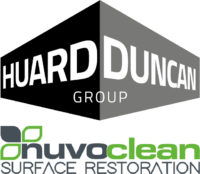Clean For Health, First And Foremost
Regular, periodic cleaning of the carpet and textile furnishings in your home is recommended not only for appearance reasons, but more importantly for health reasons. Carpets and other textiles in your home act as filters, capturing fine dust particles which prevent them from remaining airborne where they are respirable by you and your family. Regular and frequent vacuuming is critical to reducing the level of indoor pollutants trapped within, but over time these fine particles can become bonded to and embedded deep in the fibers which will require professional cleaning to remove them from your home.
Clean To Extend The Life Of Your Carpets and Upholstered Furniture
A carpet does not have to look soiled to be in need of cleaning. In fact, once a carpet looks soiled, it is generally considered overdue for professional attention. Soil particles have sharp edges and with normal use, they will cut, scratch, and damage fibers shortening their usable life considerably. When carpets and upholstery appear visibly soiled, a restorative cleaning approach may be required which can increase the risks of processing and/or limit the results of cleaning.
Clean Regularly and Frequently
NUVOCLEAN® Surface Restoration recommends annually cleaning for carpets and cleaning every two years for fabric upholstery. More often in busy areas or for homes with pets and/or children. Manufacturers recommend leather upholstery should be cleaned, conditioned, and protected as often as every six months in order to maintain it’s original beauty and extend the life of the leather. Tile & grout floors should be professionally cleaned and the grout sealed at least every two years, more often in food preparation areas, eating areas, and bathrooms.
Protect For Lasting Beauty
Due to the enormous benefit of increased soil and stain repellency, the application of a high quality fabric protector is always recommended after carpet cleaning, upholstery cleaning, and area rug cleaning. Natural stone floors and grout should always be sealed using a premium water-based penetrating sealer when first installed and again after each professional cleaning.
Do Your Stone Tiles or Countertops Need To Be Sealed? Not always…
This is something most sealer companies don’t want you to know. Different stones have different porosity rates, some are basically non-absorbent so there is little, if any, benefit to sealing them.A simple test using a small puddle of water will reveal if your stone surfaces are porous. Simply put a palm sized puddle of water on your countertop or in the middle of a floor tile. Let it sit for 10 minutes and then wipe away with a paper towel. Try a couple of locations to be sure.If the area where the puddle was placed has darkened the stone, it has absorbed the water and it is considered porous and will need sealing. If you are getting no darkening then sealing is not necessary.
Call us today 604-565-7494 to get a free quote, or book an appointment on-line!

